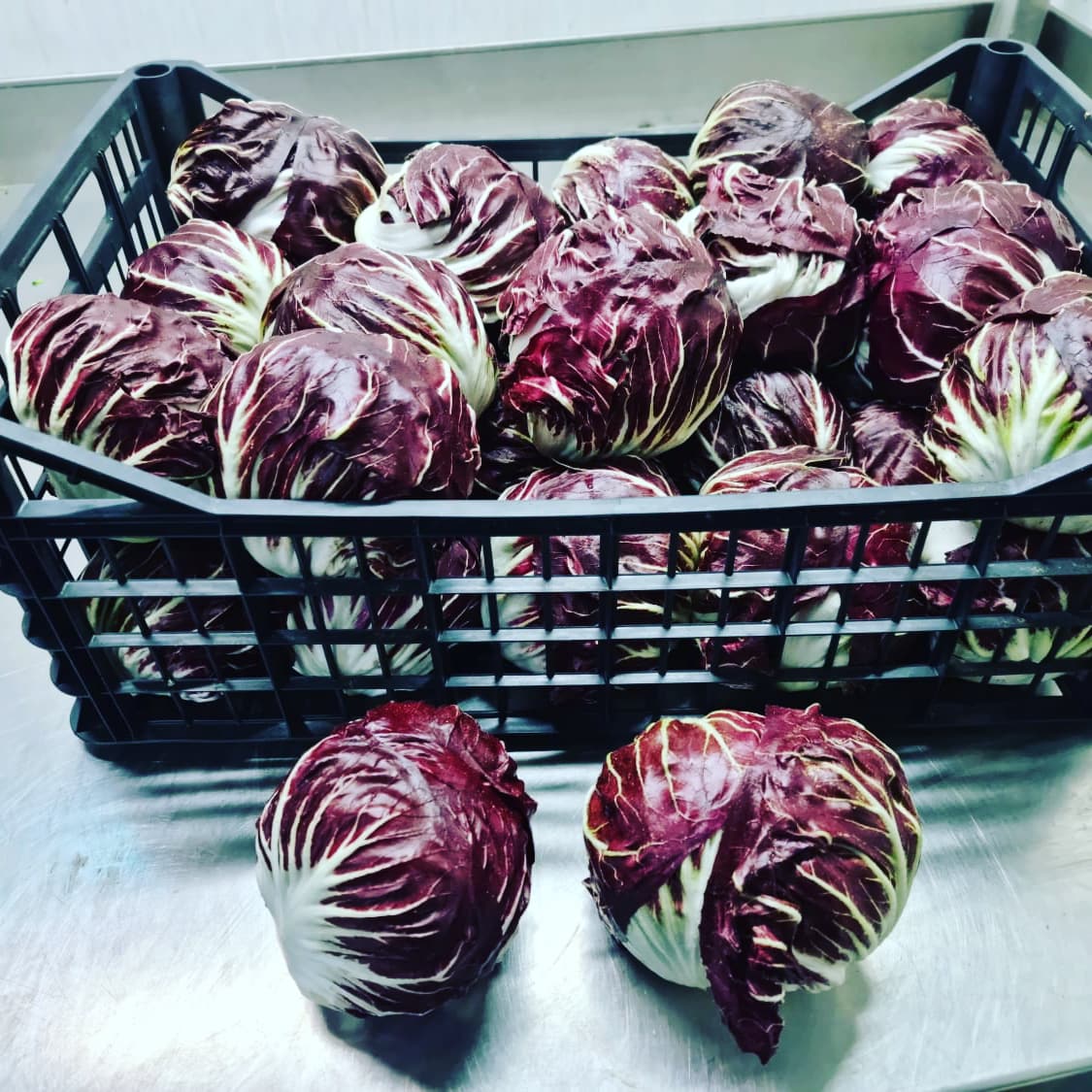Radicchio is a leafy vegetable belonging to the Composite family, characterized by its reddish-purple leaves and slightly bitter taste.

Key features include its crisp texture and bold flavor, making it a versatile ingredient in various dishes. Radicchio is rich in antioxidants such as flavonoids and carotenoids, which offer health benefits including anti-inflammatory effects and immune system support. It is particularly recommended for those aiming to maintain a balanced diet rich in nutrients, especially those looking to increase their intake of antioxidants. However, it may not be suitable for individuals with sensitivities or allergies to Composite family plants, as it could trigger adverse reactions. Additionally, due to its bitter flavor, it may not appeal to everyone and might require special culinary pairings to enhance its palatability.
TYPICAL SEASONALITY
Radicchio is typically an autumn and winter vegetable, with its peak season falling between October and March. During these months, radicchio is in full season and can be easily found in local markets and grocery stores. However, thanks to modern cultivation and distribution practices, radicchio can also be available at other times of the year, although its availability may be limited and prices might be higher outside its main season.
Nutritional Values
| Nutrient | Value |
|---|---|
| Calorie | 23 kcal |
| Protein | 1,4 g |
| Fat | 0,2 g |
| Carbohydrates | 4,5 g |
| Fibre | 0,9 g |
| Zuccheri | 0,7 g |
| Vitamina A | 4240 IU |
| Vitamina C | 9 mg |
| Vitamina K | 255 µg |
| Folati | 30 µg |
| Potassio | 302 mg |
| Calcio | 19 mg |
| Ferro | 0,5 mg |
